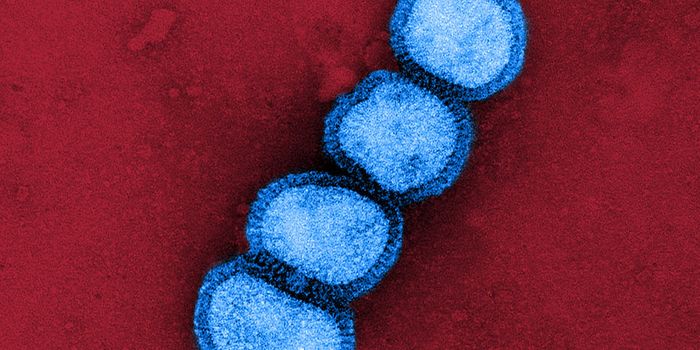With Flavonoids, Microbes can Provide Protection Against Flu
Our gastrointestinal tract is populated by microbes that can exert a powerful effect on our health. Researchers have been investigating the connections between this microbial population, the gut microbiome, and infection with the influenza virus. A mouse model has demonstrated that one bacterium has a protective influence, shielding mice from severe flu infections. The scientists have suggested that the microbes can do it by breaking down flavonoids, molecules that appear naturally in foods like blueberries and beverages such as red wine and black tea.
This work, reported in Science, was conducted by a team of researchers at Washington University School of Medicine in St. Louis. Because the microbes have to be present and digest the flavonoids before exposure to the virus, it could be one explanation for the variation in flu severity in people.
"For years, flavonoids have been thought to have protective properties that help regulate the immune system to fight infections," said the first author of the report, Ashley L. Steed, M.D., Ph.D., who works with intensive care patients at St. Louis Children's Hospital. "Flavonoids are common in our diets, so an important implication of our study is that it's possible flavonoids work with gut microbes to protect us from flu and other viral infections. Obviously, we need to learn more, but our results are intriguing."
The flu is common and often fought off with rest and over the counter symptom relief, but it can hit some people very hard. Around 113 kids die every year from the flu according to the Centers for Disease Control and Prevention. The World Health Organization estimates the number of flu-related deaths ranges from 250,000 to 500,000 every year.
For this study, the scientists wanted to find out how the gut microbiome could help prevent nasty flu illness. It has been suggested by nutritionists that some foods, like those high in flavonoids, can provide some health benefits.
"It's not only having a diet rich in flavonoids, our results show you also need the right microbes in the intestine to use those flavonoids to control the immune response," said the senior author of the work, Thaddeus S. Stappenbeck, M.D., Ph.D., the Conan Professor of Pathology & Immunology. "We were able to identify at least one type of bacteria that uses these dietary compounds to boost interferon, a signaling molecule that aids the immune response. This prevented influenza-related lung damage in the mice. It is this kind of damage that often causes significant complications such as pneumonia in people."
The investigators determined that a bacterium called Clostridium orbiscindens was able to degrade flavonoids, and in doing so produced a metabolite that aids interferon signaling.
"The metabolite is called desaminotyrosine, otherwise known as DAT," Steed explained. "When we gave DAT to mice and then infected them with influenza, the mice experienced far less lung damage than mice not treated with DAT."
Mice exposed to DAT had less flu-induced damage to their lungs even though they had the same level of virus as unexposed mice.
"The infections were basically the same," Stappenbeck said. "The microbes and DAT didn't prevent the flu infection itself; the mice still had the virus. But the DAT kept the immune system from harming the lung tissue."
Flu vaccines cannot stop every case of the illness. “But with DAT, it may be possible to keep people from getting quite as sick if they do become infected," Steed continued. "This strategy doesn't target the virus. Instead, it targets the immune response to the virus. That could be valuable because there are challenges with therapies and vaccines that target the virus due to changes in the influenza virus that occur over time."
The scientists want to find other protective bacteria, and figure out how to increase the levels of beneficial microbes in the digestive tract when needed. They also suggest that drinking tea and getting flavonoids in your diet might be helpful to your health, especially when next flu season starts.
Learn more about flavonoids from the video.
Sources: AAAS/Eurekalert! Via Washington University School of Medicine, Science









